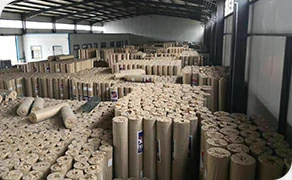 TEL:
+86-13102802206
TEL:
+86-13102802206
 Email:
fencenetting@china.com
Email:
fencenetting@china.com
 Language
Language
 TEL:
+86-13102802206
TEL:
+86-13102802206
 Email:
fencenetting@china.com
Email:
fencenetting@china.com
 Language
Language


Understanding the Cost of Barbed Wire per Roll
When it comes to fencing solutions, barbed wire is a popular choice for both residential and commercial applications. Often used for security purposes or to contain livestock, the cost of barbed wire per roll can vary widely based on several factors. Understanding these cost components can help buyers make informed decisions and budget appropriately.
Factors Influencing the Cost
1. Material Quality The type of steel used in barbed wire production significantly affects its price. High-tensile steel offers increased durability and strength, thus exhibiting a higher price point compared to standard galvanized wire. Galvanization itself is a protective coating that resists rust and corrosion; therefore, the thickness of the galvanization can also influence the cost.
2. Roll Length and Gauge Barbed wire typically comes in rolls measuring from 400 to 1,320 feet in length, with common gauges ranging from 12.5 to 14.5. Thicker wires (lower gauge numbers) are generally more expensive due to the increased material usage. On the contrary, lighter gauges may reduce upfront costs but can lead to higher maintenance and replacement expenditures.
3. Type of Barbed Wire There are various types of barbed wire, such as single strand, double strand, or those with varying barbed spacing. Specialty wires, like those designed for electric fencing, may also command higher prices. The choice between standard and specialty wire will influence the final cost per roll.
4. Manufacturer and Brand Like many products, brand reputation can play a role in pricing. Well-known manufacturers may charge a premium for their products due to perceived quality and reliability. Conversely, lesser-known brands may offer competitive pricing, but it’s essential to evaluate their quality and reviews.
5. Bulk Purchases and Discounts Many suppliers offer discounts for bulk purchases. If you're planning a project that requires a significant length of barbed wire, buying in bulk may substantially lower the cost per roll. It's also wise to shop around and compare prices from various retailers to find the best deals.

Average Cost Range
On average, the price for a roll of barbed wire can range from $50 to $200 or more, depending on the factors mentioned above. For instance, a 1,320-foot roll of high-tensile, 12.5-gauge galvanized barbed wire may retail for around $100, while a lighter, lower-quality option could be found for approximately $50. Pricing can fluctuate based on regional availability, shipping costs, and seasonal demand.
Long-Term Considerations
While the initial investment in a roll of barbed wire can seem high, it’s important to consider long-term implications. Barbed wire that is more expensive upfront may save you money in maintenance and replacement costs over time. For properties requiring high-security measures, investing in quality fencing can deter unwanted visitors and ensure the safety of livestock, ultimately offering peace of mind.
Additionally, some regions may have specific regulations regarding fencing types, particularly for agricultural purposes. It's always a good idea to check local laws before purchasing fencing materials.
Conclusion
When evaluating the cost of barbed wire per roll, it's essential to consider various factors such as material quality, gauge, roll length, type of wire, and potential discounts for bulk purchases. Understanding these elements will help you make well-informed decisions, ultimately leading to greater satisfaction with your purchase. Whether for securing a property or containing livestock, investing in quality barbed wire can provide security and durability, representing a wise long-term investment. As you shop, don't hesitate to research and compare different products, ensuring that you find the right solution for your specific needs at the best possible price.